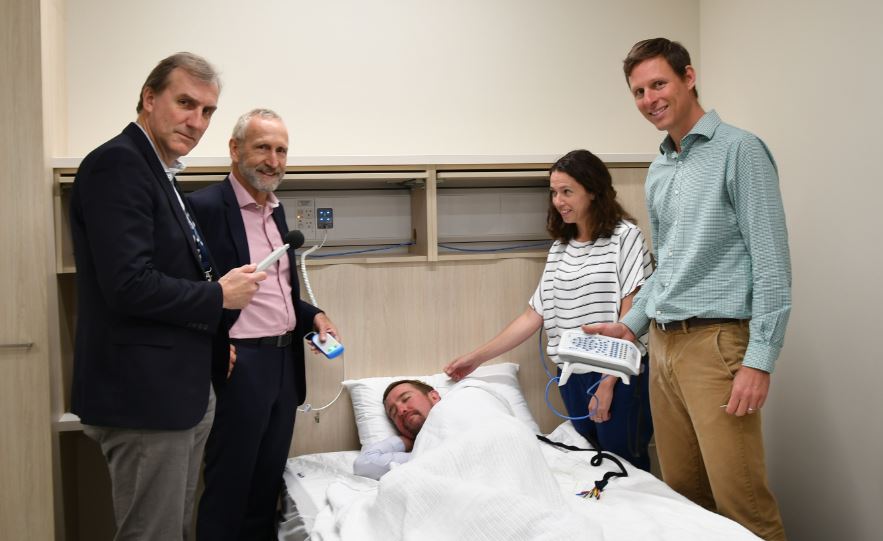South Australians with obstructive sleep apnoea are invited to take part in a clinical trial to develop the first ever medication to treat the dangerous sleep disorder.
Obstructive sleep apnoea (OSA) is commonly treated with a CPAP machine (continuous positive airway pressure) but researchers at the Adelaide Institute for Sleep Health (AISH) at Flinders University are trialling a new drug therapy which aims to open up the airways and improve sufferers' sleep.
Professor Danny Eckert is leading two trials in SA which originated after a recent discovery with collaborators in Boston, USA.
"The prevalence of obstructive sleep apnoea is increasing in Australia, with sufferers also at higher risk of cardiovascular disease, diabetes and stroke," says AISH director Professor Eckert, from the Flinders Health and Medical Research Institute.
"The aim of the first study is to determine the effects of a combination of drug therapies (collectively called AD173) on sleep efficiency in people with OSA.
"We will also be looking at the effect of these combined agents on the arousal threshold - how often you wake up during the night - and other sleep and breathing parameters. We will also measure sleepiness and next day alertness."

Professor Eckert says another trial was being undertaken simultaneously to measure different doses of one of the drugs (called AD-036) versus a placebo.
"This second study is expected to provide guidance on the ideal dose of AD-036 and a deeper understanding on the safety and tolerability of the use of these medicines in people with sleep apnoea.
"The outcomes will greatly inform future treatments and give patients with low tolerance to CPAP machines an alternative option to treat their sleep apnoea."
The sleep trials are two of many being undertaken at the Flinders AISH's new state-of-the-art research facility built with the support of The Hospital Research Foundation and Flinders Foundation.
The facility includes a six-bedroom acoustically-treated laboratory with the latest technology to measure respiratory and brain function, test for the impacts of environmental noise on sleep and conduct live-in sleep deprivation and circadian experiments.
"The facilities allow us to combine clinical, physiology, psychology and engineering expertise in a world-class environment to tackle the major burden of sleep problems in the community," Professor Eckert says.






